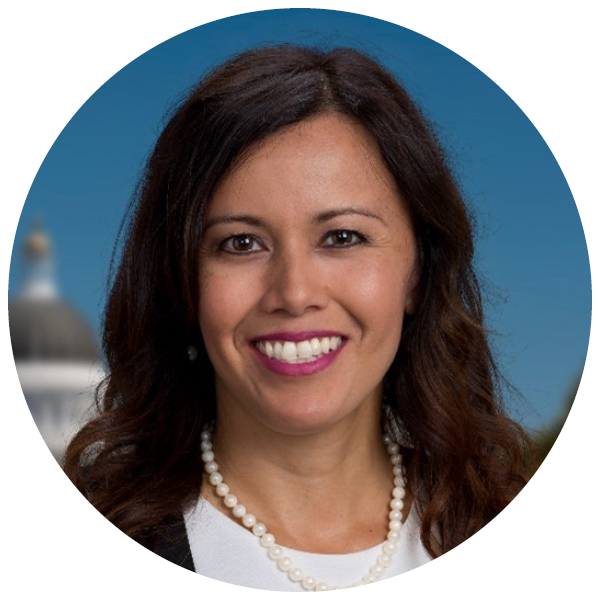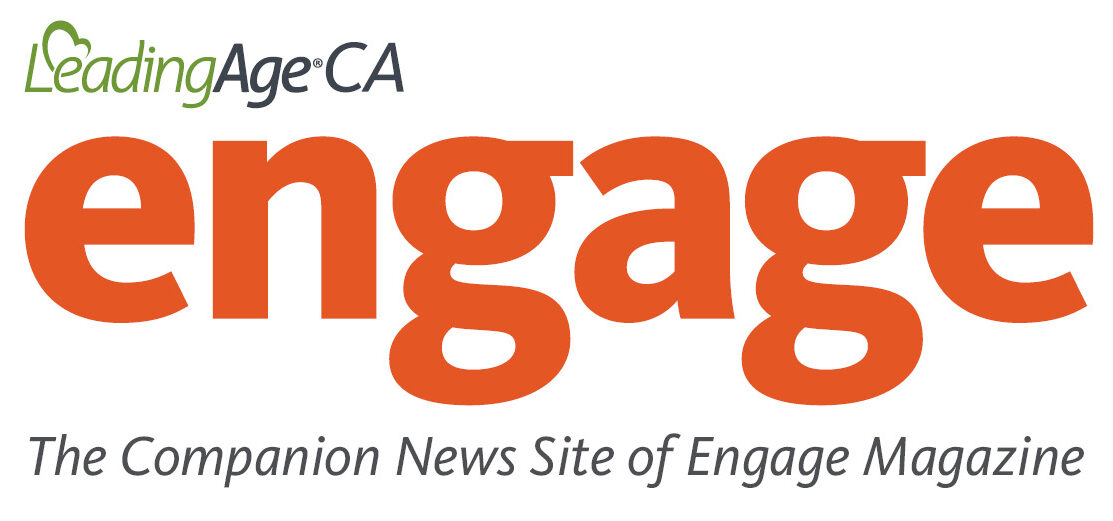Q&A with the California Department of Aging’s First Chief Equity Officer, Marina Castillo-Augusto
Marina Castillo-Augusto joined the California Department of Aging (CDA) in December 2022 as its first Chief Equity Officer. In this role, Castillo-Augusto works with stakeholders and advises CDA executive management in the formulation, implementation, and administration of policies to advance equity as a core principle within the Master Plan for Aging (MPA) and throughout California’s programs impacting older adults, people with disabilities, and family caregivers.
 What led you to the role of Chief Equity Officer?
What led you to the role of Chief Equity Officer?
As a child of farm worker parents who labored in the fields surrounding the small Solano County town of Dixon, I witnessed the many injustices my family encountered. At the same time, I saw my parents modeling the importance of a strong work ethic, gratitude for what little they had, and the importance of community, always helping neighbors in need. I saw the discrimination my parents confronted because of our race and socio-economic status, and the opportunities we didn’t have because my parents worked in a certain industry. These life experiences exposed me to the many injustices and realities of our institutions and systems, driving me to pursue a career trajectory to represent individuals without a voice or a seat at the table.
I knew education provided the key to advancing system change. As a first-generation college student, I utilized the Educational Opportunity Program (EOP) for financial and academic support, eventually earning my bachelor’s degree in Criminal Justice and a Master’s in Counseling at California State University, Sacramento. After college, I worked in the nonprofit sector as an advocate for victims of crime and for anti-human trafficking efforts. My state career began more than 26 years ago, including many positions engaging diverse and hard-to-reach populations. Before joining CDA, I served as Chief of
the Community Development and Engagement Section with the Office of Health Equity at the California Department of Public Health. In this capacity, I launched the California Reducing Disparities Project, a $60 million pilot program aimed at reducing mental health inequities for targeted racial, ethnic, and LGBTQ communities. In addition, I led the Community Mental Health Equity Project, building partnerships with county mental health departments and community-based organizations serving under-represented populations.
On a personal level, the issues impacting older adults, people with disabilities, and family caregivers deeply resonate with me. I’m a caregiver for my 85-year-old mother who is confronting health issues while trying to maintain her independence. I have also witnessed the issues impacting people with disabilities; not only does my husband have a disability, but my daughter suffered a Traumatic Brain Injury almost three years ago, and today she is in her third year of college. Navigating the system with my mother, my husband, and my daughter has shown me the tremendous system challenges facing these populations. Today, I am thrilled to have the opportunity to advance equity in system change through the Master Plan for Aging.
As Chief Equity Officer, how are you working to advance equity in the Master Plan for Aging?
My position gives me the opportunity to work both internally to advance equity within CDA’s programs and services, and externally to advance equity within the Master Plan for Aging. As staff to the Equity Advisory Committee on Aging & Disability (EACAD), I work with stakeholders to ensure equity is a core principle in the planning and implementation of the MPA’s programs and policies impacting older adults, people with disabilities, and family caregivers — specifically, Black, Indigenous, Latino, Asian-American, Pacific Islander, and LGBTQ+ communities. Additionally, I am leading the CDA team to develop and implement our first Racial Equity Action Plan (REAP) and overseeing the department’s Tribal Affairs Program.
In 10 years, how will we know if we have been successful in our efforts to advance equity through the MPA?
You can’t improve what you don’t measure. Accountability is a critical component of the MPA, and the Data Dashboard for Aging is a tremendous tool that offers us the ability to measure our progress in advancing system change through the MPA. We must continue to hone the data and identify the system issues so that we can focus on meeting the needs of our state’s growing and diverse aging and disabled populations — while also supporting the system infrastructure across the continuum of care from home and community-based services, to assisted living, and higher levels of care. If we are successful, in 10 years we will have a society where all older adults, people with disabilities, and family caregivers can access the culturally and linguistically responsive services and supports they need to age with dignity and in the setting of their choice.
What is next for the MPA?
I’m excited about the release of the 2022 MPA Annual Report, which highlights the tremendous accomplishments to advance the MPA over the past year. We also launched the new MPA initiatives for 2023-24 on January 20. We have a lot to do to achieve our goals for an age-and disability-friendly California, and the MPA initiatives set the stage for our work over the next few years — in partnership with our state colleagues, stakeholders, and private sector partners. Together, we can make it happen!




